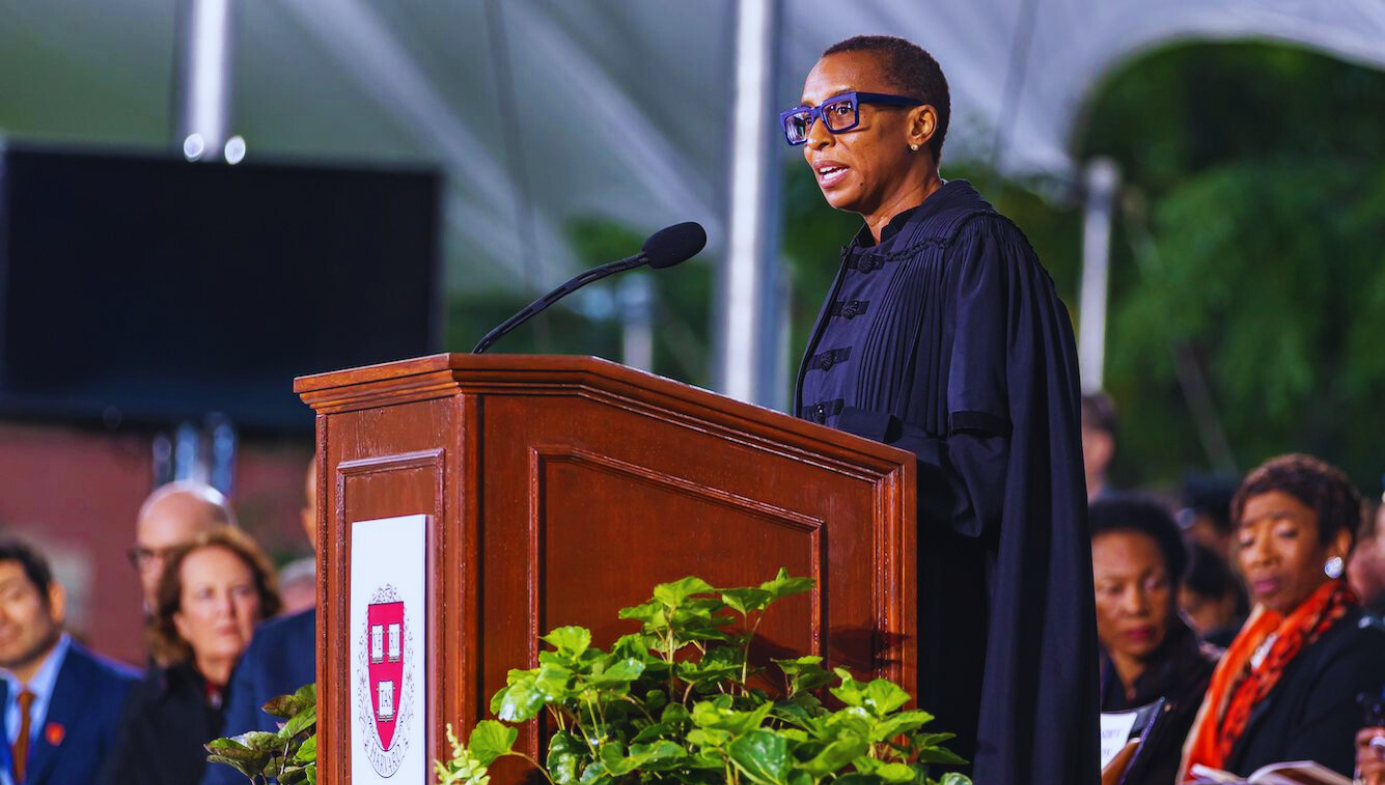Harvard University
Claudine Gay’s Misguided Defenders
Damning facts shouldn’t be ignored just because they’re brought to light by the ‘wrong’ kind of person

On January 2, Harvard University President Claudine Gay announced her resignation in an open letter addressed to the school community. This came a week after Gay had been pushed to step down by Penny Pritzker, the leader of Harvard’s governing board; four weeks after Gay infamously refused to categorically denounce genocidal rhetoric targeting Harvard’s Jews; and more than two months after the New York Post first approached Harvard with questions about passages in Gay’s publications that had been copied from other authors.
As one might expect, Gay’s resignation letter sidestepped the substantive complaints and evidence raised by her critics—including the ongoing discovery of plagiarized content in her writings. Instead, Gay played the victim, complaining about how “distressing” it had been to have her “bedrock” commitment to “scholarly rigor” placed under scrutiny. It was the same messaging that had been on offer from Gay’s enablers at Harvard and in the media, who’d often refused even to use the word “plagiarism” in their euphemistic accounts.





